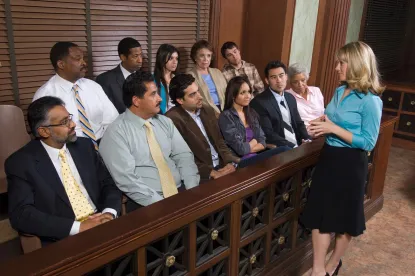Most have heard the cliché “don’t do the crime, if you can’t do the time.” For many criminal defendants, however, a significant factor in the time served is not just the crime committed, but rather the so-called “trial penalty.”
A “trial penalty” describes situations where a defendant chooses to proceed to trial instead of accepting whatever plea deal the Government had offered and receives a significantly lengthier sentence than she would have received had she not gone to trial. Often the “trial penalty” results in a defendant receiving a much lengthier sentence than those received by more culpable co-conspirators who accepted a plea.
Indeed, a severe criminal sentence recently affirmed by the Fifth Circuit demonstrates the substantial penalties federal prosecutors can—and do—seek for white collar criminal defendants who vigorously fight their charges and take the Government to trial.
After electing to proceed to trial, Daniela Gozes-Wagner was convicted by a jury of conspiracy to commit health care fraud and conspiracy to commit money laundering. The trial court then sentenced Gozes-Wagner to 10-year terms of imprisonment for each count to run consecutively with each other (i.e. a total 20-year prison sentence) and ordered her to pay $15 million in restitution.
Gozes-Wagner appealed her sentence, arguing that her sentence was unconstitutional because the trial court imposed a “trial penalty” on her. She argued that she received a harsher sentence than allowable because she chose to exercise her constitutional right to a jury trial rather than accepting the Government’s plea offer. Gozes-Wagner compared her 20-year sentence to the substantially lower 5- and 6-year sentences received by the more culpable leaders of the conspiracy who pocketed millions of dollars from the fraud scheme.
The Fifth Circuit was unmoved by these arguments, finding no due process violation where Gozes-Wagner received a significantly lengthier sentence than her co-conspirators that pleaded guilty, including those that did not cooperate with the Government. The appellate judges concluded that they “cannot say” whether the trial court imposed a longer sentence on Gozes-Wagner after pursuing a trial than she would have received had she pleaded guilty.
This case stands as a stark reminder that federal prosecutors are able to back defendants into a corner where they may feel compelled to take the plea deal offered rather than proceeding to trial and risking a substantially lengthier sentence. A defendant’s role in the criminal conduct at issue may prove to be less of a factor in the sentence received compared to whether that defendant elected to go to trial.
***
UPDATE (1/20/2021): President Trump has commuted Gozes-Wagner’s sentence, thereby releasing her from prison after more than three years. A commutation changes the terms of Gozes-Wagner’s punishment, and she no longer has to serve the remainder of her sentence. Unlike a pardon, a commutation does not absolve the underlying conviction.
President Trump’s commutation order explained:
Ms. Wagner is a single mother of two children who has been in federal custody since her 2017 conviction for health care fraud and money laundering. Ms. Gozes-Wagner worked as a mid-level manager for a company that improperly received Medicare and Medicaid funds. Of the individuals in Ms. Gozes-Wagner’s case, Ms. Gozes-Wagner was the only defendant to go to trial. She received a sentence of 20 years’ imprisonment and was ordered to pay $15.2 million in restitution. This sentence was significantly more severe than the sentences imposed on the other defendants, several of whom played a more central role in the fraud. Her sentence was criticized by numerous former high-ranking U.S. officials as disproportionate to her crime.
Despite the remarkable turn of events for Gozes-Wagner (as commutations are extremely rare), federal defendants who proceed to trial still face the prospect of a “trial penalty.”



 />i
/>i

